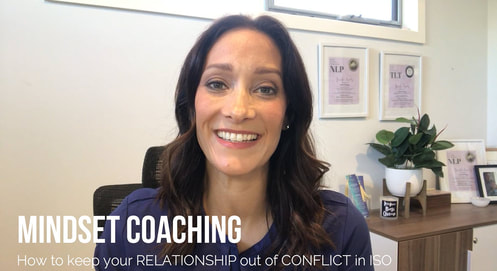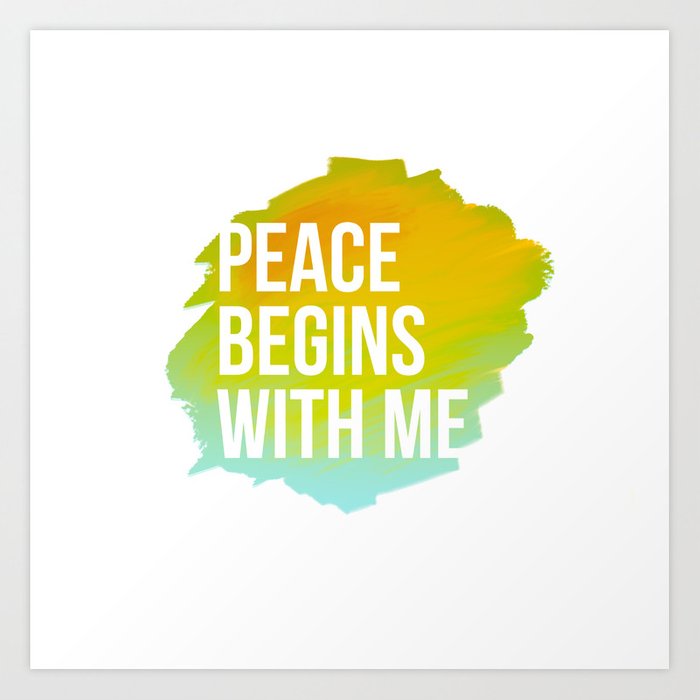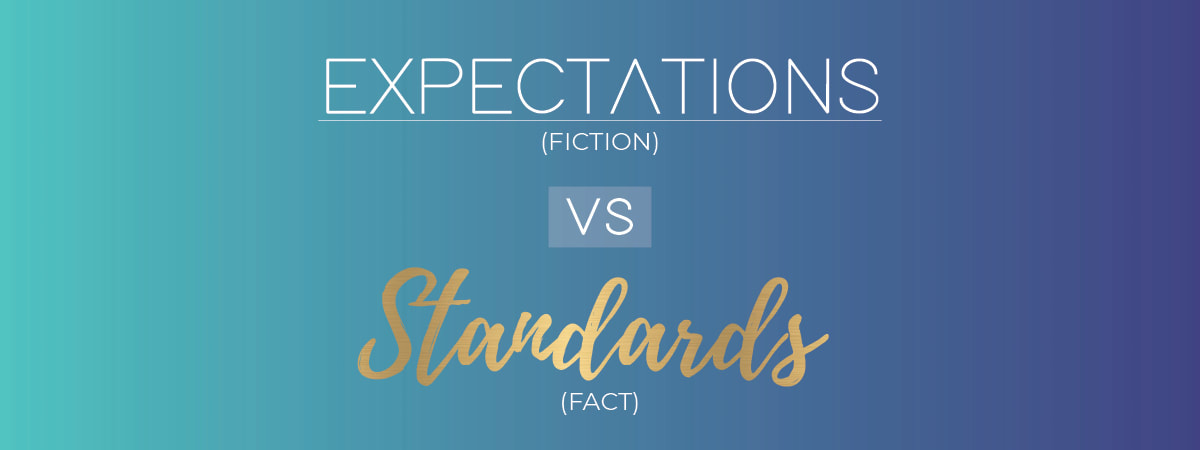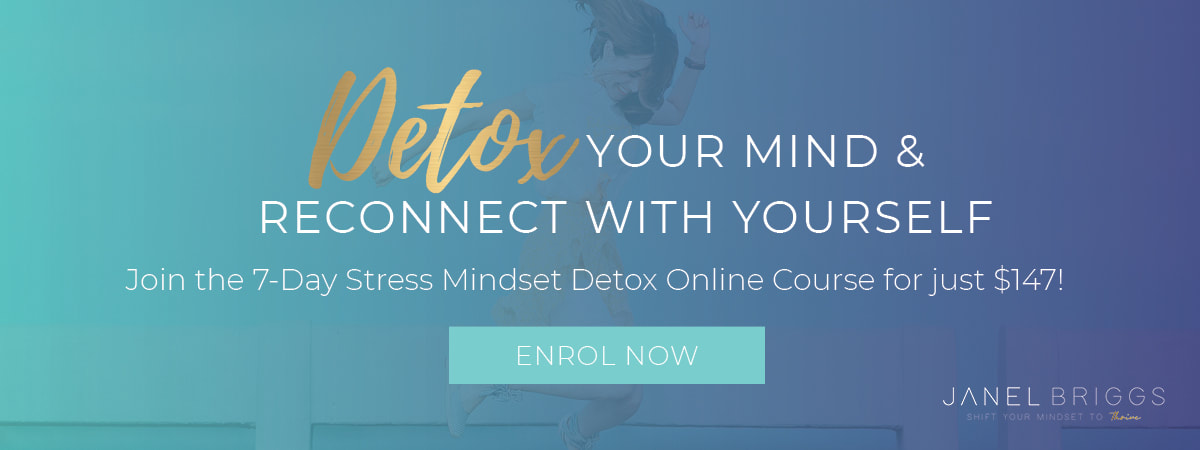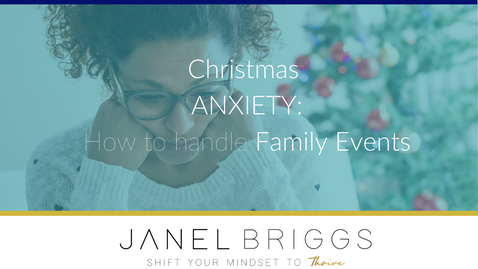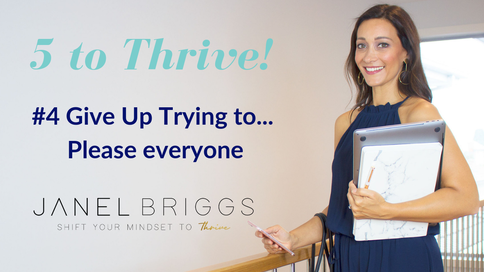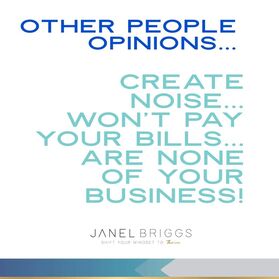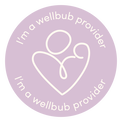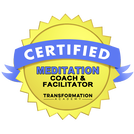AuthorJanel Briggs Categories
All
|
Back to Blog
It’s the Multi-Tasking Time of the Year20/12/2021 At any given day, I bet you’re juggling 10 or more things at once. You’re thinking about work, home life, pets, children, friendships, family, and more. Then December comes along and BANG, now you’re juggling all of the above PLUS present buying, holiday planning, catch ups, work celebrations, year end reflections, new year planning, etc… With all of this added pressure (from ourselves and society), we may feel like multi-tasking is not just the best way to handle things, it’s also the only way. Well, I hate to be the one to burst your bubble, but it’s not. While a small percentage of the population (2% according to Forbes magazine in 2017) are good at multi-tasking, for the rest of us, constantly switching between tasks and attempting to multi-task actually decreases our productivity by up to 40%. See when we’re multi-tasking, while it may feel like we’re working faster and efficiently, we’re actually more likely just spinning our wheels, never really moving forward. We’re producing less than stellar decisions, outputs, and work. We forget what we were doing, where we’re at, and sometimes if we’ve even finished the tasks we’re trying to work through! We’ve got tabs open on our laptops. Links saved in our browsers. Lists all over the place. Scraps of paper with random notes on them. We’re also less able to filter out irrelevant information and decrease distractions, meaning we often make mistakes which means going back and redoing the work we thought we’d completed. In addition to this, multi-tasking also leads to:
Are you getting a clearer picture of why multi-tasking really isn’t ideal? Yes? Good. Now I know it might sound like the complete opposite of what you want to do, but introducing even a few of the suggestions below will go a long way in decreasing your multi-tasking habits and increase your productivity and the quality of everything you do.
1. Focus on one thing at a time. If you’re finishing up a report, focus on the report. Don’t click on browsers to figure out what time the shopping centres close so you can stop in after work. 2. Be present with whatever task you’re doing… How can you possibly write a heartfelt Christmas card when your mind is thinking about the email you need to send to your supervisor? Write the card. 3. …. and THEN move on to the next one With the card written and tucked in its envelope, now you can write up that email and give it your full attention. 4. Commit to “Do Not Disturb” time It’s hard to ignore all the notifications popping up all day, so let your device do it for you. Either pause, turn off, or set your “Do Not Disturb” so you can really concentrate. 5. Create time blocks Whether these are in 20minute windows or more or less, set your alarm or timer so you can stick to the task at hand (rather than bouncing from task to task) knowing that your next time block will be focussed on that task. 6. Shift your “big projects” to earlier in the day. Most people work best in the mornings before decision fatigue and interruptions have kicked in, so carve out this time (by using Do Not Disturb and time blocks) to work on those bigger projects. Here are three more important ways to reduce multi-tasking are to simplify our decision making so we don’t end up with decision fatigue.
For myself and my clients, I find the tips and tricks above go a long way in decreasing our multi-tasking and decision fatigue. I want to enjoy this time of year, and want you to do the same, so let’s choose even one of the suggestions above and really commit to it. Let’s stop multi-tasking and focus on the task at hand. As always, I’m here to help with these and other ways to get you thriving, so be sure to subscribe to my blog above, and if you’re really keen, book in a here so we can see which of my coaching for programs might be best serve you. Take care JB
0 Comments
read more
Back to Blog
Still (exhausted!) working from home?17/11/2021 Even though most of the country has opened up, many of us are still working from home. Some by choice, some because we always have, some because you’re not allowed back into the office. Before the pandemic I reached out to over 2,000 women on LinkedIn and asked if they’d be open to sharing their personal experiences on key triggers for stress and anxiety. Almost half of the women (46.8%) said their career and job were the number one major source of stress in their life, followed by relationships and money. “Volume of work being overwhelming” was cited as the number one reason for work-related stress. Considering this was before the pandemic, these results tell us that, as a collective, we were already at capacity before 2020 and 2021 hit us. We were already at capacity before the definition of work norms and “office hours” became almost completely distorted. Before the lines between “work” and “home” became even more blurred. Give these a go
Like any work situation, working from home has its pros and cons. One of the differences with working from home is that you can have (or take back) some control of the home/work life juggle. As someone working from home and working with women who work from home for the past 5 years, I thought I’d share some practices I’ve incorporated (with trial, error, and practice) into my and my clients’ “work day” from home.
Build it in After looking over this list you might be thinking, “Great ideas Janel. I’m going to do them all!”. Stop. Pick ONE change and do that first.
I want you to succeed with these changes so they become regular habits and routines so they help signal your mind and body that the workday is over. That “home time” is here (even if you’ve never left it). If you’d like help introducing and incorporating these changes into your workday (with accountability!), be sure to check out my new program Burnout Recovery, a 4 week coaching program to help you reset your daily habits and look at what is potentially continueing to fuel this exhaustion. Working from home might be your reality in the short or long term. Let’s get you in the best work-from-home flow so you can thrive in work, home, and life!
Back to Blog
Almost half of those said they worked nearly TWICE as many late hours than the previous year.
And the number of hours spent working overtime? For many it went from 236 hours to a staggering 436 hours in one year. No wonder we’re all so burnt out! In my own work, many women and clients I’ve spoken to said this year has felt like one big emotional hangover, which often leads to… burnout. And the similarities I’ve been noticing? Emotional exhaustion + mental load = burnout Emotional Exhaustion Emotional exhaustion is the most common experience of burnout women feel and that I’ve seen with my clients during the last year and half. Whether it’s total exhaustion from the weight of conflicting, overwhelming, and repetitive emotions or the prolonged feelings of exhaustion, frustration, fear, worry, loss, sadness, anger, resentment, and even guilt, we’ve all been feeling it. The constant changes and adaptations. The cycles of change with feelings of little control over our lives. They all take an emotional toll. They all lead to emotional exhaustion often followed by burnout. Carrying the Mental Load The mental load we carry is not often as obvious as emotional exhaustion. But you know all those thoughts constantly swirling in our minds? The processing, analysing, overthinking? The monkey chatter and second-guessing? The doubts and fears? Well, this is carrying (and often being consumed by) the mental load. The mental load of our thoughts, worries, fears, and the stress that come from these patterns of repetitive (and often negative) thoughts. Of future pacing and staying five steps ahead. And then there’s the over-analysing… Have I done enough? Is there more I should be doing? Something I should’ve done? Something I shouldn’t? The reality of carrying these constant thoughts and beliefs is that is becomes overbearing, overwhelming, and exhausting. The mental load wears us down and leads us to burn out. How could it not? Making Changes Even after we’ve recognised our emotional exhaustion and mental load and made some changes, we often still FEEL burnt out. Confusing right? See when we experience chronic stress these feelings can trigger negative thought, emotions, beliefs, and patterns which often triggers our bodies’ stress response. So even if you’ve eliminated or eased the stresses and know things have changed your body never actually got the memo that everything’s ok. It doesn’t know you’re in a good place. You’re out of lockdown. You’ve changed jobs. It doesn’t know you’re ok. It doesn’t know you’re safe. Essentially what this means is that removing the stress doesn’t fully move you through burnout. Instead it’s your behaviours. Your behaviours tell your body things have changed and it’s ok to relax. This is why when you think, “I’m over that now.”, and can’t work out why you still feel so exhausted it’s because you’ve made changes to your external environment but not your internal habits and behaviours. You need to signal your body that you ARE safe. The danger IS over. You need to allow your body to process through the emotions, because if you don’t, you’ll likely stay in an emotionally burnout state being triggered time and time again. But, nothing changes if nothing changes right? Here are three steps you can start today to release the emotional exhaustion and lighten the mental load that can lead to burnout.
Emotional exhaustion and carrying the mental load are real. And remember, there are strategies and practices to assist, and I’m always here to help whether through my YouTube channel, blogs, or programs.
Back to Blog
Processing Frustration + Fear (Covid-19)10/7/2020 Essentially this for my fellow Victorian's... but wherever you are in Australia, or around the world, you may find also value in this message. I am feeling Victoria's collective frustration at our state government and the people in question who did certain things during the COVID-19's first lock down which has now prolonged our experience and thrown us into a wave 2. I have connected with so many new women on my social channels and email list since the beginning of COVID-19 back in March. I am grateful for the opportunity to add value in my pocket of the world when I can with the knowledge I have on how to process negative emotions. Anger and frustration at our external world brings up a lot of anxiety as the worry bubbles up wondering "how long will this will go on"?! I know the turn of events this week in Melbourne are likely causing you stress, it is hard not to be consumed by the bad news and social media coverage. This is your reminder: We’ve gotten through ISO before - we can do it again! If you are like me, and have been feeling all the feels this week as we move into this 6 weeks of ISO... then I want to share with you the simple tools I use to help when the fear and frustration hits:
We’ve seen other Australian states do it and New Zealand! They are showing us what is possible. We can too!
Back to Blog
Handling Relationship Conflict in ISO22/5/2020 Have you been feeling it ? That little (or big!) bubble of irritation coming up as you look at your partner or kids or house mates... who left this mess? Who's dishes are these? Where did that washing come from? Can you take the kids I am on a call? It's been a long period of ALL TOGETHERNESS during COVID-19. Staying home is what we need to do, and through doing the "right thing" our RELATIONSHIPS are being tested. We've probably never had so much time together in close quarters WITHOUT our external vices or an escape, have we? Small things that we took for granted like being able to hit the gym, go shopping or meet friends for a catch up are non-existent. In a research study I conducted in 2019 into Women's Stress and Anxiety in Australia the women who participated in the survey said that: "Downloading to a friend or family member was cited as the best way to manage their stress and anxiety, closely followed by exercise and scrolling through social media/watching TV". Our first two "go-to's" for stress release have been taken away, so I'm tipping we've gone ALL IN on the third one though without a doubt! ;) Which if you've read my blog on Calming Your Anxious Mind at Night you'll know the extra screen time has not been ideal for our much needed sleep. It is no wonder really without our external vices and with the lack of zzzz's that conflicts are arising at home. Behaviours or actions that wouldn't normally irritate us start to build up and really wear thin. The reason why? We feel constraint. And it is irritating. We are being told what we can and can't do, when we can and can't do it, and then we have to play the waiting game. It is so against our normal freedoms it feels like a friction. And who better to take that out on... than the people we love the most. The people who are also feeling all the feelz with us! We all know we are staying home for the "best reasons" but that doesn't change how it feels. And no one likes feeling constraint. No one. Certainly not me. I am unable to work and create and produce anything to my usual capability under home school and ISO restrictions. Are you? It is flat out frustrating. But, at the end of the day I know we are all just doing the best we can to get through. So, how can you settle the storms at home BEFORE a conflict arises? Watch below. In this video I share a few tips to help you get your mindset right, and relieve that tension before it erupts! A few simple tools to get your through working at home with your partner in ISO!
|
|
Stay Connected
Subscribe and be the first to access new blog content news & updates. |

 RSS Feed
RSS Feed






